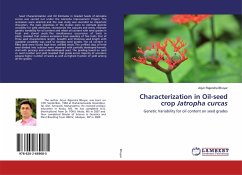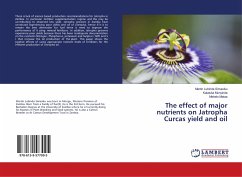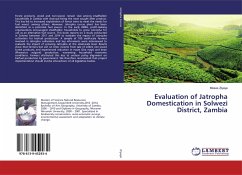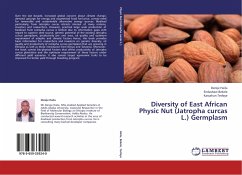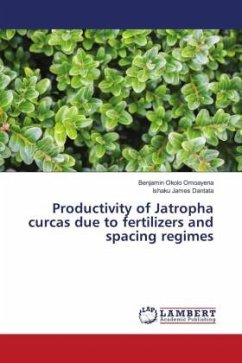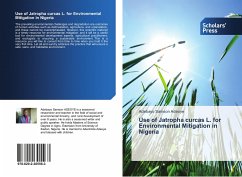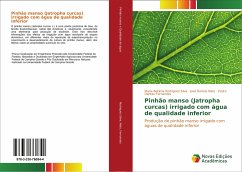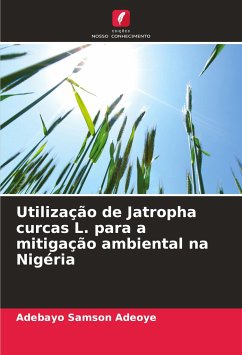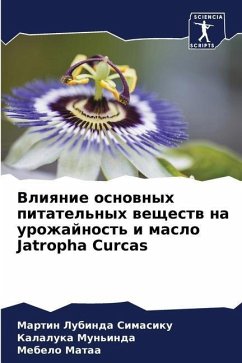
Jatropha Meal, a Functional Feed for Ruminants: Benefits & Limitations
A novel bioactive protein source for the future of feed industry
Versandkostenfrei!
Versandfertig in 6-10 Tagen
56,99 €
inkl. MwSt.

PAYBACK Punkte
28 °P sammeln!
Jatropha curcas L. is known as a valuable source of seed oil for biodiesel production. The meal contained about 60% protein with a good balance of essential amino acids, containing various bioactive phytochemicals, including phenolics, flavonoids, saponins, phytic acids, trypsin inhibitors, and lectins which render it as a potential biofeed for ruminant production. The Jatropha meal exhibited antioxidant, antibacterial and anti-inflammatory activities which corresponded to the various bioactive compounds present in the meal. Among bioactive compounds presence in the meal, the phorbol esters li...
Jatropha curcas L. is known as a valuable source of seed oil for biodiesel production. The meal contained about 60% protein with a good balance of essential amino acids, containing various bioactive phytochemicals, including phenolics, flavonoids, saponins, phytic acids, trypsin inhibitors, and lectins which render it as a potential biofeed for ruminant production. The Jatropha meal exhibited antioxidant, antibacterial and anti-inflammatory activities which corresponded to the various bioactive compounds present in the meal. Among bioactive compounds presence in the meal, the phorbol esters limits its application as ruminant functional feed. The rumen microbes were capable of degrading the phorbol esters to some extent. Moreover, the phorbol esters even in low concentrations induced cytotoxicity in the bovine kidney cells, followed by changes in cell morphology, proliferation, differentiation and finally cell death. Therefore, complete removal of phorbol esters is absolutely necessary before its application as a functional feed for ruminants.



